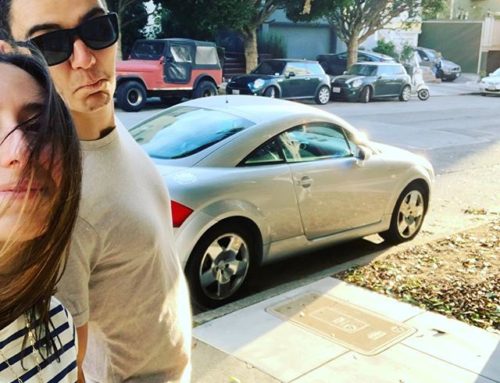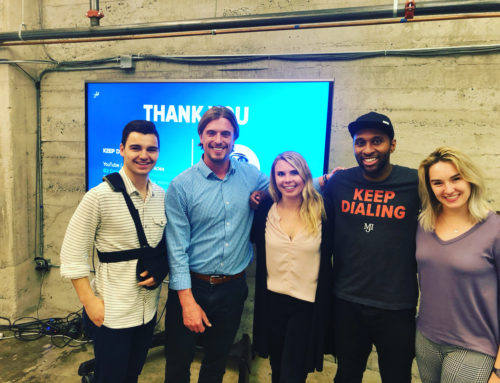In 1905, Edwin C Barnes was broke, unskilled and uneducated. But he had an ambitious dream: to be business partners with the greatest inventor of his time, Thomas Edison. There were only two issues with this plan. First, he did not know Edison. Second, he didn’t have enough money to get to Edison’s lab in Orange, New Jersey.
Enchanted with this goal, Barnes decided to jump on a freight train and showed up at Edison’s laboratory unannounced, describing his lofty goal to the inventor. Edison, noticing the determination in Barnes’ eyes, decided to give him a shot. Not as a business partner, but as a floor sweeper.
Barnes saw that his foot was in the door and made the most of the opportunity. Not ashamed to be sweeping floors, he used this occasion as mentorship from Edison. Barnes gained Edison’s trust, worked hard and learned from his established colleagues while he waited for his moment to strike.
After two years of menial tasks, Barnes saw his chance. Edison had just perfected his dictating machine, later called the Ediphone. His salesmen were reluctant about the new invention and sales were lower than Edison had anticipated. Barnes, using what he’d learned the past two years, quickly developed a marketing and sales plan for the new device and was given the opportunity.
The rest is history. Barnes not only sold the Ediphone, but did so well that he was given a contract to market and sell the product nationwide and was even able to don the slogan “Made by Edison and installed by Barnes.” Not only did this make Barnes rich, but it also accomplished his goal of becoming business partners with Edison.
It all started as a mentorship.
Mentorship can absolutely change your life. However, there are some misconceptions about what a mentor really is that we should clear up first.
Generally, a mentor can be someone that is farther ahead than you are in your field of interest that you’d like to learn from. If you’re an aspiring writer, it may be someone that has published multiple bestselling books while you are stuck with writer’s block on page 8 of your first manuscript. That’s fine. This person was there at some point and can certainly add value to help you out.
The toughest part of mentorship is actually finding the right person to be your mentor. Despite popular belief, emailing 100 bestselling authors “Will you be my mentor?” is a surefire way to get 0 email responses.
Anyone that you deem successful enough to be a “mentor” is likely 10X busier than you are and would see that label as being negative. Another (free) job for them to sign up for, great. You have to be unique, creative and persistent to land your mentor.
Here are a few ways to develop mentors that actually work:
Join A Cause They Care About
Bestselling author and entrepreneur Tim Ferriss often speaks about this being the strategy he used when first moving to Silicon Valley. He volunteered at several non-profits he was passionate about. As time went on, Tim took on additional responsibilities and was able to meet some of the Board Members through his hard work. He was seen as an indispensable part of the non-profit, which helped to show his value and opened the door for a conversation with people he was interested in meeting.
Add Value To Them
Just like you aspire to be a writer (or a Founder or a bodybuilder), your dream mentor has goals and aspirations as well. Maybe they dream of their next book being a New York Times Bestseller. Maybe they want to be on Oprah. Maybe they want to get into film. Find out what that thing is, (social media likely tells this story) find a way to add value in that department and ask for nothing in return.
A friend of mine is a great salesman and wanted to learn more about the business of documentaries. He found a documentary producer that was looking for advertisers but was unsure how to find and sell them. My friend traded his expertise in sales to learn about the documentary process, helped him landed a six-figure ad partner – and asked for no cut of the deal. The knowledge and connections were well worth his time. He’s now using these resources to create his first documentary.
Get Creative
Two years ago, I realized that my network was weak and I was in need of a “mentor”. My frail requests to “get coffee and pick your brain” were failing at an all-time rate. I knew I had to take action and get creative. I decided to launch a podcast and blog as an excuse to meet amazing people, learn from them and help them get their message across to a wide audience (add value to them).
I’ve been able to meet CEOs, bestselling authors, Olympic Gold Medalists, and Hall-of-Fame athletes. Some of these people have become strong influences on me. When I have a question or am looking for advice, I can go to them because I’ve added value to them.
Work For Them
It’s easy to target Bill Gates or Sheryl Sandberg as a mentor and overlook the people you surround yourself with every day. Some of the best mentors I’ve had have been people I worked for. Just because they’re not on the Forbes richest people list, doesn’t mean you can’t learn a ton from their experience.
Look at your boss. Can you learn something from them? If so, great! Start to form that relationship. If not, it’s time to look for work elsewhere.
Every day should be an opportunity to learn something and get you closer to your goal.
Make Mutual Connections
The easiest sale is through a referral and the easiest way to find a mentor is through a warm connection. Start with your current network: who do you know? What interests do they have? Where have they worked? Pick 5-10 people that you know personally and dissect to see if they have a connection with someone you’d like as a mentor.
You can even tell this person what you’re looking for and see if someone comes to mind for them. Be authentic & vulnerable: let them know your aspirations, why you’re struggling and who the ideal person is that they could connect you with. People are a lot more willing to help when you’re specific in your request.
Virtual Mentors
Despite the strong influences that I’ve met at work and my podcast, I find virtual mentors to be the simplest and most overlooked way to learn. Just because you can’t get in touch with A-list people like Warren Buffet or Oprah Winfrey or people from history like Susan B. Anthony or Martin Luther King Jr. doesn’t mean you can’t learn from them.
In fact, there is much more information available on the most successful people in history than you could have reasonably get your hands on over the next 50 years. Read, actively take notes and learn.
Whenever I see a successful person asked “What’s on your nightstand?”, the answer is lengthy. They understand that knowledge is power and that virtual mentors offer immense untapped advice.
Conclusion
Finding a mentor is an excellent way to up-level yourself. As Jim Rohn says, “you are the average of the five people you spend the most time with.”
Learn from great mentors – physically and virtually – and you’ll have great success.
Sign up for the weekly Millennial Momentum Newsletter. No BS, All hustle




















Solid read!
My man! Thank you.